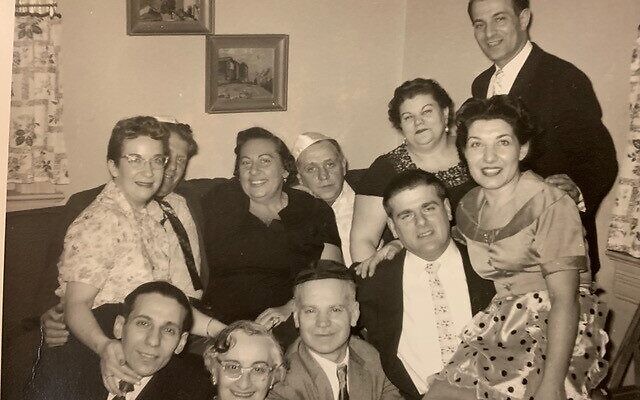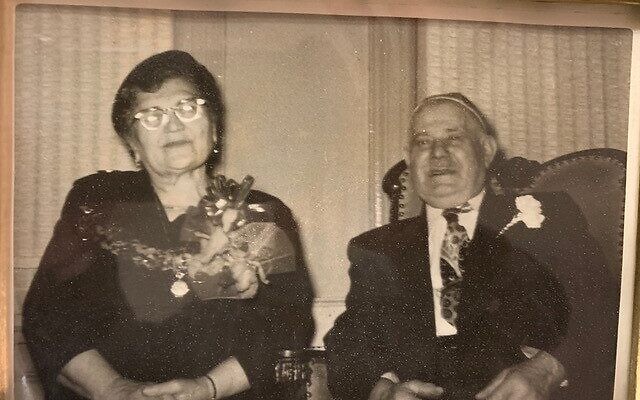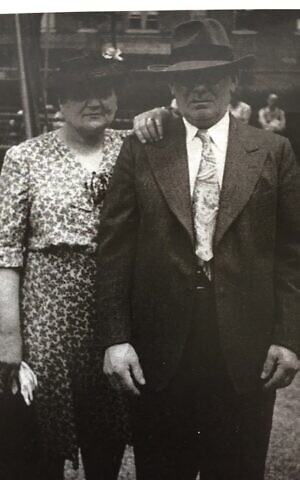Coming to America
More than 100 members of the Klein family recently celebrated the centennial anniversary of ancestors Jacob and Frida U.S. arrival. For many, it was the first time they met.

On March 7, 100 family members across the U.S. and Europe joined a Zoom meeting to celebrate the arrival of grandparents, great-grandparents and great, great-grandparents at Ellis Island exactly 100 years earlier. It took well over a year to organize the gathering, and in two hours every person in attendance spoke about their family and themselves, some meeting for the first time.
About a year ago, my cousin Ira Klein of Florida mentioned that we were approaching the 100th anniversary of the arrival of our grandparents Jacob and Frida Klein to the U.S. as Romanian immigrants on March 7, 1921. Before the coronavirus struck, we contemplated meeting at Ellis Island, but the pandemic forced us to pivot to a Zoom event, which allowed for easy attendance.
When I asked Ira the value of such a celebration, he said, “We have always been instilled with a high sense of family. Some of our best memories were family-related get-togethers. I want to see the family continue to have that feeling. We all appreciate that the lives we have today are owed to the courage of Jacob and Frida.”
We were able to piece together their story from interviews with Klein family members about coming to America and travel documents translated from Hungarian, Romanian, German and Yiddish.

The Klein family lived in Borgo Prund, an area in Hungary near the border with Romania. The main town was Somogyvar (now Gherla). There were no roads, although a few streets had gravel on them. Jacob’s job was to take a team of horses to pick up pebbles and gravel from lakesides four to five miles away to help pave the roads.
When World War I broke out, Hungary began drafting men. Jacob was about 25 years old. To avoid the draft, he left behind his family in 1915 and came to the U.S.
Once in America, Jacob knew a few people in Youngstown, Ohio, and found a job at a steel mill, Youngstown Sheet & Tube. After five years, with $12,000 in cash, Jacob came back to Borgo in early 1920, which soon became Romania. He vowed, “If anything ever happens, I am coming back to the United States.” As a safety measure, Jacob hid $2,000 in the bottom of his shoe with a cobbler’s help. Jacob then obtained a single passport for his entire family.
In late 1920, as the U.S. was about to restrict the quota of Romanians allowed into the U.S., the American ambassador contacted Jacob and told him, “You’ve got to make up your mind: You either have to go to America now, or you will have to stay in Europe.” Frida didn’t want to leave her mother and the rest of her family. Ultimately, she agreed.
When the Kleins left Borgo, they only brought what they could carry. Based on their passport, they left Borgo in December 1920 and traveled to Bucharest. After meeting with the American Joint Distribution Committee, they left Bucharest by train, passing through several countries. At every border, Jacob bought off the guards with American dollars. Finally, the family arrived in Antwerp, Belgium, and boarded the SS Niagara for the U.S.
There were about 400 passengers on the boat. It was wintertime, March, and very cold. Many became seasick. The trip took 10 1/2 days. They arrived at Ellis Island, N.Y., on March 7, 1921.

Jacob returned to Youngstown with his family since his job was available for him. However, to avoid working on Saturday, he began selling produce from a horse-drawn wagon, then from a truck, and later opened a fruit store in Queens when the family moved to New York. Some of his sons worked in the business with him.
Frida learned English by helping her children with their homework. Jacob spoke six languages dealing with his customers. Some of the children, including my mother, never finished high school. Some entered college, but none finished because they had to work during the Great Depression to support the family.
As I listened to my family on our recent Zoom call, I realized my Bubbe and Zeyda now have grandchildren, great-grandchildren, and great, great-grandchildren. Members of the family include medical professionals, lawyers, accountants, financial analysts, teachers, executives, entrepreneurs, and college students. Professionally, the extended family had become a success story.
I asked my cousin Ira after the Zoom celebration about the reunion. “I loved the experience. Being as spread out as we are today, it was awesome to hear about the achievements of the family. I heard somewhere that we all die twice. Once when we expire, a second time when our name is said for the last time. I hope our grandparents and parents never die a second time.”



comments